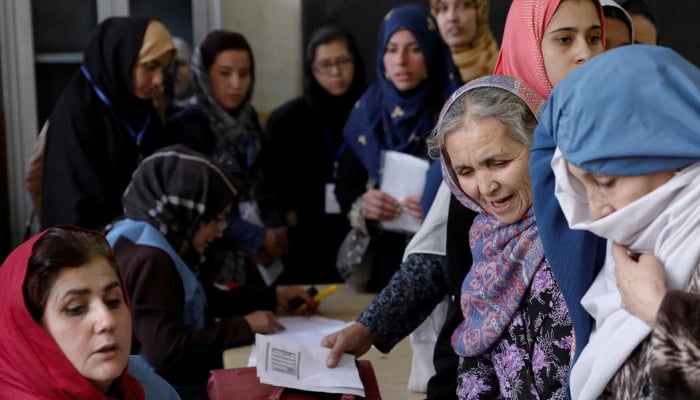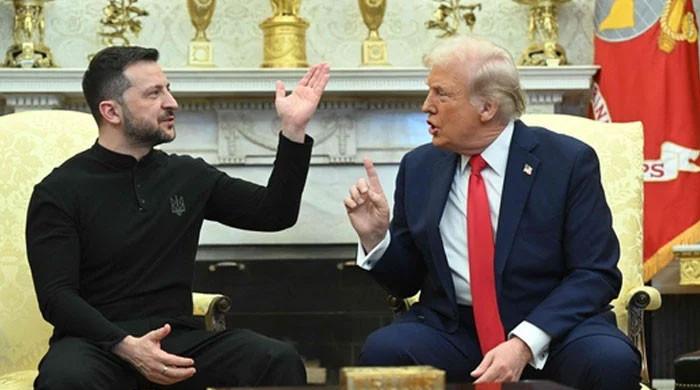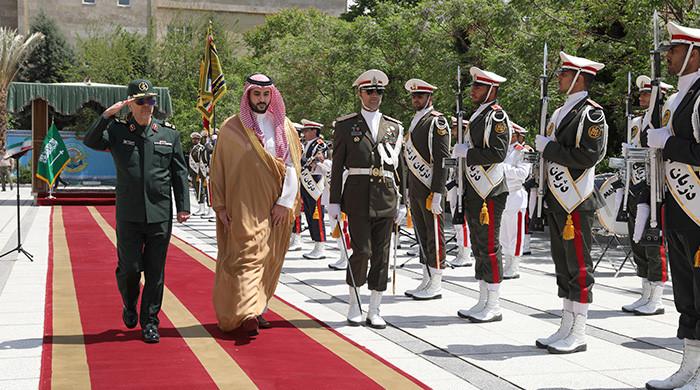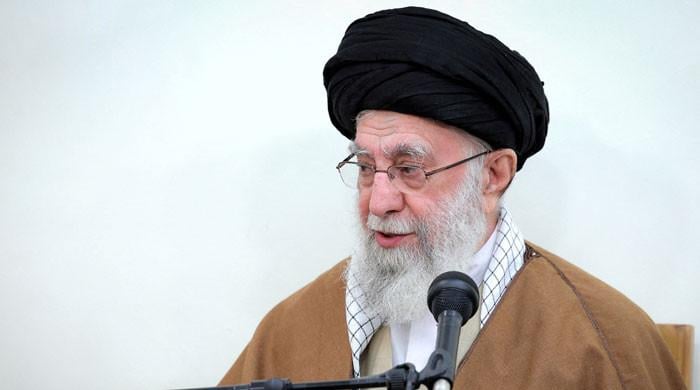Taliban team at Afghan peace talks in Qatar to include women: spokesperson
'There will be women among Taliban delegation members in the Doha, Qatar meeting,' the Taliban spokesperson said
April 16, 2019

KABUL: Women will be included for the first time in the Taliban delegation to peace talks in Qatar this month, the movement’s main spokesperson said on Monday, ahead of the latest round of meetings aimed at ending the war in Afghanistan.
For a group notorious for its strictly conservative attitude to women’s rights, the move represents a step toward addressing demands that women be included in the talks, intended to lay the foundations for a future peace settlement.
The April 19-21 meeting in Doha will be the latest in a series of talks between Taliban and US officials and is also expected to include a 150-strong delegation of Afghan politicians and civil society figures.
“There will be women among Taliban delegation members in the Doha, Qatar meeting,” Zabihullah Mujahid, the Taliban’s main spokesperson, said by telephone.
He did not name the women, but added, “These women have no family relationship with the senior members of the Taliban, they are normal Afghans, from inside and outside the country, who have been supporters and part of the struggle of the Islamic Emirate”.
In a tweet, he specified that the women would only join discussions with Afghan civil society and political representatives, not in the main negotiations with American officials, led by US special peace envoy Zalmay Khalilzad.
The Taliban have maintained their rejection of formal talks with the Afghan government, which they dismiss as a “puppet” regime controlled by the United States.
While Afghanistan remains a deeply conservative country, especially in rural areas, there have been major advances in women’s rights since the US-led campaign of 2001 that toppled the Taliban government. Many women fear that if the group regains some power, many of these gains could be erased.
The movement gained worldwide notoriety when it came to power in the 1990s by forcing women to wear full facial covering and imposing severe restrictions including banning girls from school and forbidding women from working outside the home.
However, Taliban spokespersons say the group has changed and it encourages girls’ education and other women’s rights within an Islamic system.
Civil society groups, the Western-backed government and Afghanistan’s international partners have pressed for women to take part in the talks and news of the Taliban delegation was welcomed. Fawzia Koofi, a former member of parliament who took part in a previous round of meetings in Moscow, said the presence of women in the Taliban team was a “good step”.
“Only women can feel the pain and miseries that Afghan women have suffered. The presence of women among the Taliban negotiators shows that the Taliban’s ideology has changed.”
Jean Shaheen, a member of the US Senate Armed Services Committee, who has been pressing for women to play a role in the peace talks said the process should be inclusive.
Future international support for Afghanistan could be affected by whether women’s rights were properly respected in any settlement, she said.
“There are certain levers that we have, that the Taliban are interested in,” she told reporters in Kabul, where she was visiting as part of a Congressional delegation. “There is going to be an interest in economic support after the conflict ends.”
“I think if the Taliban has any interest in getting international support ... it would be in their interest to recognize the importance of including women and including human rights as part of any settlement that happens.”











